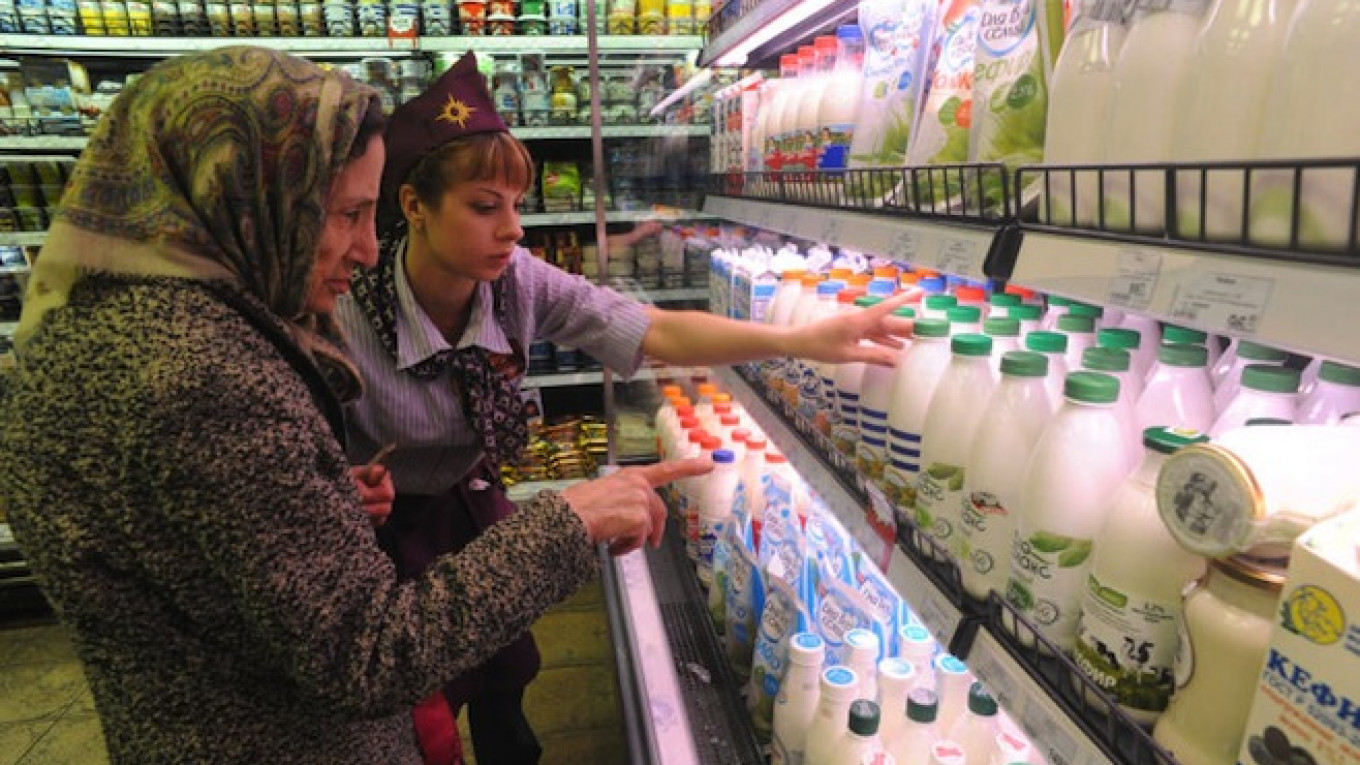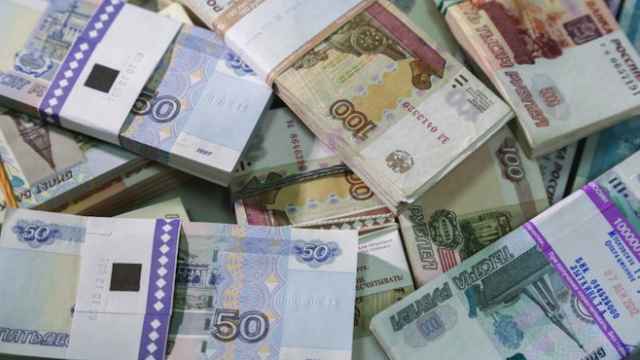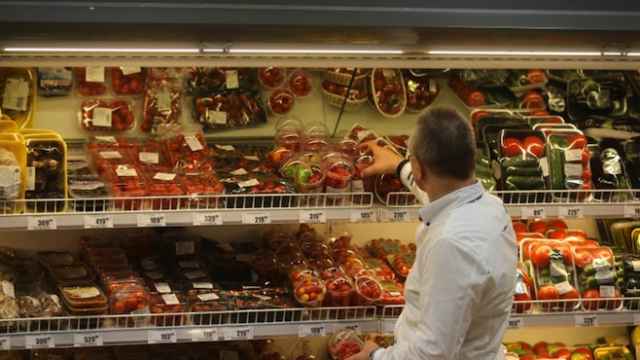The social well-being indexes of Russians fell in December to reach a several-year low amid the economic crisis and complicated political situation, the state-run pollster VTsIOM reported Wednesday.
Indexes are averages of the participants' positive, moderate and negative estimates.
The welfare self-estimate index fell 10 points compared with November's and reached the low levels of 2009. Meanwhile, 24 percent of Russians estimate their financial situation as “bad.”
The social optimism index fell 17 points compared with September. Only 27 percent of Russians believe that their life is going to improve next year. Their vision of Russia's economic situation is also more negative than in the previous years — 33 percent of VTsIOM respondents see it as bad.
Nevertheless, the overall country's development estimates are still mostly positive — 45 percent of people polled by VTsIOM responded positively. Only 17 percent think otherwise, and all others hadn't made up their minds yet.
The poll was conducted on Dec. 12-13 among 1,600 participants in 46 Russian regions, and had a margin of error not exceeding 3.5 percent.
The main reason for the decline in Russians' social optimism is the ongoing economic crisis, and the consequences they have already noticed, VTsIOM director Valery Fedorov said.
“Real income decreased by 10 percent this year and the ruble collapse amid the current oil market degression resulted in negative perspectives for an economic rise. A lack of 'light at the end of the tunnel' depresses people the most,” Fedorov said.
Another reason for the decline in indexes is that people don't understand the current political and economic climate, political expert Alexei Makarkin told the Vedomosti newspaper Wednesday.
The annexation of Crimea and the Donbass conflict were something people could understand and support, but Syria is just “another Muslim country” far away from them, Makarkin said. “The situation is more complicated and disturbing now, [so] it strengthens distrust,” expert said.
A Message from The Moscow Times:
Dear readers,
We are facing unprecedented challenges. Russia's Prosecutor General's Office has designated The Moscow Times as an "undesirable" organization, criminalizing our work and putting our staff at risk of prosecution. This follows our earlier unjust labeling as a "foreign agent."
These actions are direct attempts to silence independent journalism in Russia. The authorities claim our work "discredits the decisions of the Russian leadership." We see things differently: we strive to provide accurate, unbiased reporting on Russia.
We, the journalists of The Moscow Times, refuse to be silenced. But to continue our work, we need your help.
Your support, no matter how small, makes a world of difference. If you can, please support us monthly starting from just $2. It's quick to set up, and every contribution makes a significant impact.
By supporting The Moscow Times, you're defending open, independent journalism in the face of repression. Thank you for standing with us.
Remind me later.






